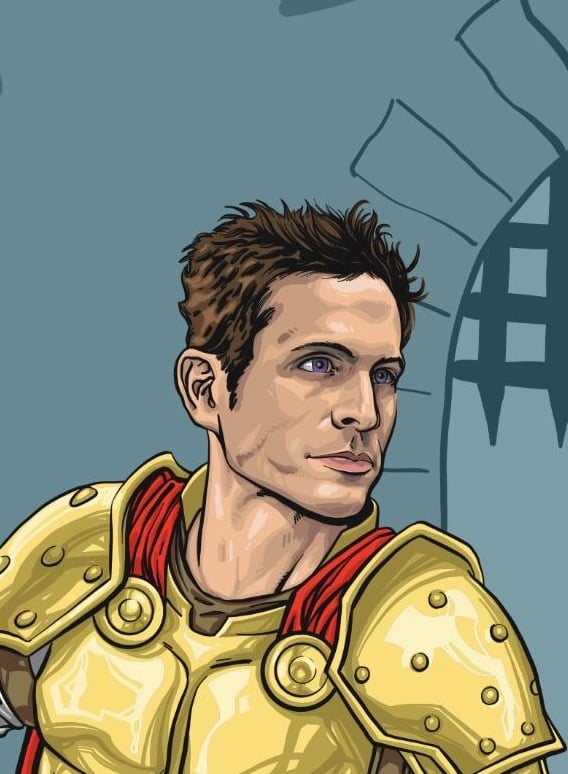Cars fulfill a very self-indulgent narrative. ‘I get to decide where and when I travel’, makes people feel “free” snd “important” even when millions of them are silently coming to the same decisions-- like going downtown at 09:00 on weekdsys-- that allow huge efficiency plays.
Notice how many ads feature fantasies of open roads and trips to faraway attractions, not the real world of “I need to sit in rush hour traffic from 6:30 on to get to the Work Factory”
Maybe public transit needs to focus its message on the freedom from drudgery it offers-- you don’t have to be staring at the driver in front of you, scanning the traffic reports
Exactly! This is why I love micromobility and quality public transit so much. With micromobility like electric scooters or bikes, I can zip past traffic in the protected cycle lanes in my city. With the frequent metro service in my city, I know I can show up to the metro station at basically any time and know it’ll be a max 5-minute wait for the next train. And when I’m on the train, I can just chill and scroll on my phone or read a book instead of stressing about traffic. The freedom to think about something that isn’t traffic.
Unfortunately as it stands in some places the infrastructure is awful. Take England for example; catching a train to London takes about 20 minutes for me, however there are often 10-15 minute delays that you now have to start accounting for, you also have to sit in a cabin with someone blaring their music that isn’t to your taste. Hopefully you’re not in a cabin with a toilet, because it’s going to stink of shit.
Now the return journey, fingers crossed it’s not cancelled otherwise you have another 40 minute wait for the next train! Last train home is a real anxiety inducing experience, will you be getting that train home or has it been cancelled? This is unfortunately all too common here. Sadly because public transport is for profit rather than a necessary service we have someone trying to do the bare minimum to make that money, and then pay the bare minimum to their staff who don’t give a shit. It all begins to unravel and people just have a better experience sat in that morning traffic which is a more consistent and pleasant experience to the public transport.
The problem is once they started to turn public transport into for profit, there is little way to turn back. They invite private companies to build the network, do the operation, now how can they go back to be non profit to be a public service to the people ? Unless they do subsidise fares which will look like they are siphoning money from government to private companies. It’s a no winner situation. If the government wants to nationalise the public transport they will have to spend a significant amount of money to buy them off , which may or may not be affordable to them.
I’d say it is more about
convinceconvenience. You decide when you leave and you leave from your door. You don’t risk being late to work because you missed the train by 1 minute (baring queues, but you get the point).Really depends where you live. In my town I also decide when I leave, and I don’t risk being late because I missed the train by one minute. I’ll just take the next one. More risk of being late because of car traffic.
The problem when people compare cars to public transport is that they compare the current state of public transport in their area. We need to compare what would happen if we were spending as much billions as we do on cars.
This can also be achieved by high frequency transit.
Yeah, if the train comes every five minutes, that’s going to be way more consistent than traffic over time.
Every five minutes is not enough, every minute is definitely needed for rush hour. Thankfully, I live in London where tube trains come every minute, yey!
If I’m doing a short trip locally in the city, I get that convenience out of my bike. There are times I would have taken a taxi somewhere, but when the app told me how long it would take for my driver to arrive, I just end up cycling there (often rolling past some long lanes of traffic in the process). That process can be even better if a city is built with safe biking paths.
Unfortunately that’s super weather dependent and seasonal. Plus, some of us would be a sweaty mess by the time we biked to where we needed to go.
Bikes don’t have to be seasonal. Some Nordic countries have well maintained and plowed biking networks and they see significant use throughout the winter.
I get heat warnings every other day lately, and unless it’s the rare cloudy day my UV index is at the top of the scale. I don’t worry about snow here, I worry about heat and sun. I don’t see a good solution for that unless you want to build covered bike routes with ventilation fans all through the metroplex?
That’s an unfortunate aspect of global warming I don’t see talked about a lot, as more places approach wet bulb, any kind of physical activity outdoor will become deadly.
I would’ve expected winter time to invalidate options of bike transport, but in city areas where the snow doesn’t stay down, it doesn’t end up happening as much. You’d of course want to bundle up for the weather, but then it’s not so bad. NJB has even talked about how there are some areas of the world that have permafrost under them, and they still prefer bikes. Rain, in my experience, is just miserable either way, so I’d usually prefer the flexibility to go when a downpour has halted rather than keeping a dedicated roof-mobile around to force my way through. That said, buses have been great for rain too, so again, flexibility.
The sweaty mess remark matches with my experience when I was unused to cycling, and when going uphill. The former becomes less true after even just a week or two of experience on the pedals; I didn’t even need a ton of acclimation after recovering from a leg injury. The latter may be a symptom of poorer city planning - which prefers bikes treading flatlands for long distances. It shouldn’t end up being tiring when you’re basically moving your legs in a walking motion at a low pace (traveling for chores is naturally going to be very different from the Tour de France).
At my old job we had showers there, so in the morning I’d just grab a quick bite and pedal off with my change of clothes in my backpack, and shower when I got there.
Not to mention that well built mass transit achieves the same level of freedom. You’ll wait 5 minutes for the train and away you go.
I still would love to see a YouTube channel that takes the audio of car ads, and re-edits it with shots of the car in question just sitting in traffic.
Big Auto has been destroying any idea of high speed rails for decades. Our trains are complete trash because of car lobbyists.
Muskrat is one of the biggest ones to blame.
And they expand the roads and freeways to have rails literally no place to go
Denver has decent rail, but I have to walk/bike across this insane hellscape of cars trying to kill me for 1 1/2 miles to get to the station
I have an electric car because I refuse to pay any more money to fossil fuel companies but still need to drive. I use public transport where possible, but many trips just aren’t viable.
It takes me 30 minutes to walk to the nearest shopping centre, but 2 hours to get there by public transport, or 5 minutes by car.
As an average citizen, I don’t have the means to build or fund new railway lines. I am, however, lucky enough to be able to refuse to drive fossil fueled vehicles and still survive.
Because cars aren’t stuck to tracks.
Trains aren’t 100% the answer, but cars should be the last answer. Still we should electrify cars.
I dunno what country you are from, but here in the US of A, the monopolies that own all the train infrastructure make sure to keep trains as public transportation as cost prohibitive as possible.
This always reminds me of the movie, Roger Rabbit. I was a kid and the movie taught me a much deeper/darker lesson than it was meant to teach me at that age. It still irks me.
I used to watch roger rabbit as a kid for other reasons
I think I know exactly what you mean and I was in 3rd grade.
deleted by creator
In case you need a hint, it was Doom’s plan.
Spoiler alert- the villain buys the transit system and shuts it down, basically steals a town it served, and plans to demolish the town so he can build a freeway over it and profit.
Because North Americans were tricked by the oil and car companies in the 50s to think that car ownership was part of being human, and now we’re addicted to sitting in traffic, breathing fumes, and killing pedestrians in the name of muh freedom.
I love good public transport. It’s great to not have to worry about parking or having to drive. Good cities, like many in Europe and New York in the US, a car isn’t really required.
But out in the countryside, a car is a must. Electric cars are massively better for the environment and way cheaper to run (like tenth the cost with a night rate).
since wen this sub is full of carbrain? like bruh.
Cars can pick me up 10 feet from my front door(my car). No train tracks within 5 miles of me. I would love if their were tracks closer.
Not every journey is possible with public transport. People will still need to lug equipment about in the electric future.
Because in our current state with everything built around cars, creating a train system to accommodate it all is nearly impossible. Trains work great in a downtown, or centralized area. They are very difficult to build to accommodate our 1x1 grid system that cars use. Or at least that’s my perception of it. Even if the system could be built, it’d have to be manned, it’d have to travel to certain areas at certain times to account for jobs. And it becomes increasingly unwieldy the more requirements you add to it. I wish things had built up along a sustainable train systems instead of cars, but placing a train system in to replace the decentralized nature that cars introduce is a monumental and perhaps untenable task.
because in our sick culture and capitalist media, cars generate profit and growth and things with social benefit, like public transportation, is seen as a weakness and waste of money. I truly wish it were not so.
I love trains
Man, I went to England and we took trains (or a bus) everywhere and it was super convenient (and comfortable!).
Thank you for your service.
Because as much as trains and buses are great for everyday commuter movement (and having amenities within walking distance is key as well), there’s two issues:
- Changing the infrastructure and zoning of an existing city is much easier said than done. Ripping up concrete, tearing down existing business and homes to increase densification, that’s a huge undertaking.
- Trains never replaced the horse drawn carriage. You can never fully eliminate the need for cars because sometimes you need to move something big like a couch. Even if there’s less cars on the road, it’ll never be 0, as this also includes things like ambulances, and fire trucks that can’t rely on schedules.
Changing the infrastructure and zoning of an existing city is much easier said than done.
Fun how we had zero fucking problem doing it to every city in the country for cars. 🤷
Including destroying neighborhood-after-neighborhood with highway overpasses.
It in that case the people with power wanted the change. They could profit from it, so it came easily.
Once those same people can make money by densifying urban areas into rental hellscapes and monopolizing public transit, you’ll have that. And it will suck.
Literally destroying buildings to build surface level parking.
Actually most cities had rail laid out and working commuter trains. The car manufacturers bought them up and purposely ran them into the ground to increase car sales. (Think Twitter) they were run like that.
Some cities, yes. LA is an example, right? And how they wrecked the street cars.
But not my city. Calgary was built as a stop on the Trans Canadian Railway, and that still exists, and there’s an (okayish) light rail train system here that’s slowly been built over the years and not torn down. Fully wind powered, too! Edit: our public transit kinda sucks though, I’m not saying we’re great. My commute to the office would be over an hour by transit and twenty minutes by car, I’m lucky I work remote.
A majority of North American cities that have grown within the last hundred years (coinciding with cars) were built from the ground up with cars in mind as the primary form of commute.
But not my city. Calgary was built as a stop on the Trans Canadian Railway
Calgary had a pretty extensive Streetcar network around downtown once upon a time.
https://saadiqm.com/2019/04/13/calgary-historic-streetcar-map.html
Hey neat!
Just goes to show how history gets erased. Hopefully the green line gets built and we’ll have even some of this coverage back.
That’s what rentals are for. Yeah, there’s always going to be a need for low volume cargo transport and emergency response, but ultimately building cities so 90% of trips can be easily and comfortably accomplished via mass transit should be the goal. Nobody is suggesting transit can replace all cars.
The image in the post is of a yogi of some sort stating that electric cars are here to save the car industry first, and my impression of it is that it’s suggesting that exploring the idea of electric cars is unwise.
And hell yeah, efficient transit and walkable cities are the goal. But while we’re working on that goal, we should also focus on electrifying cars! Tackle the crisis in multiple ways. Because there’s no way we’re gonna stop using cars overnight, and if we can make cars more environmentally friendly while we taper off of them, that’s a win.
If a solution involves lining a billionaire’s pockets, he’s unlikely to offer you an alternative.
Electric cars are palatable for most of us because it just involves a straight swap. No lifestyle changes needed. It’s a much easier sell than lugging all your shopping home on the bus.
Removed by mod
Yes. If we had infinite money, infinite time, and the ability to put people into stasis while we tear up entire cities to retrofit them for a train system… that still wouldn’t solve the problem.
Cars haven’t existed forever and we managed to build places around them. There’s no reason we can’t start building everything new around other modes of transport.
If you live in a city, you are done. If you live on the outskirts of a city?..
I live in Switzerland, and none of the problems you mention in the next few paragraphs exist here. I mean frequency of public transport isn’t as good out of the cities, but I can get a bus or train to pretty much anywhere a car can get to, and some places they can’t. The buses are nice and work well, they have priority in the city so they don’t get stuck in traffic. I can get train, tram, bus, or bike to the airport no problem and if I need something bigger than I can carry I’ll just get it delivered. Yes Switzerland is rich but there’s a lot of money to be saved if it wasn’t being spent on cars, car infrastructure, and all of the externalities of driving. It’s also small, but our trains don’t go particularly quickly.
Even then, the vast majority of people in developed countries (and the majority worldwide) live in urban areas. If the people living in podunk towns need to drive, power to them. Focusing on urban areas will have a bigger impact.
But unless you are rich enough to live in the city center, you are still going to deal with a lot of headaches.
And the alternative is being rich enough to afford a house in the suburbs AND a car for every member of the family? Walkable doesn’t have to mean the city centre, and it’s much easier to achieve if you don’t have to kowtow to a bunch of suburbanites who want to drive their SUVs through your neighbourhood.
Removed by mod
First: Your baseline is Switzerland? The 6th highest GDP per Capita (how the hell is Ireland 5th?!?!?!) which ranks 132nd for area.
Please read my entire comment, I addressed this already.
Again, if you live in Tokyo or even freaking New York City (arguably all of New York+New Jersey but upstate NY is REAL republican), you are more or less good. You might be a bit inconvenienced if you don’t live near a rail station, but you’ll probably be looking at a 20-30 minute pre-commute.
The vast majority of people in developed countries live in urban areas, so for the vast majority of people that drive, this isn’t an issue. It is the rich suburbanites who are driving into cities.
Actual poor people are the ones who benefit the most from better infrastructure. Public transport is a lifeline for the homeless, and access to it is the biggest factor in whether they will be able to escape homelessness. Owning a car is really expensive, and The burdens of vehicle dependency fall disproportionately on marginalized people, especially those who are low-income and those who are Black.
More headaches than wet bulb temperature?
Yes, bc no headache when you’re dead.
I was thinking as your brain fries it might hurt, but you’re right! It won’t hurt for long.
Yes. If we had infinite money, infinite time, and the ability to put people into stasis while we tear up entire cities to retrofit them for a train system… that still wouldn’t solve the problem.
Fun how we had zero fucking problem doing it to every city in the country for cars. 🤷
EDIT: lol so the !fuckcars on lemmy.world is just pro car drama addicts, got it.
Removed by mod
We did it over multiple centuries
My brother in Christ we haven’t BEEN HERE for multiple centuries. Fun watching people give zero fucks that their defense of the status quo doesn’t make a damn lick of sense or even adhere to basic knowledge of reality.
Removed by mod
OOOOHHHHHHHHH You’re comparing apples to turnpikes and claiming it a win. Gotcha. Have fun mate.
Well said.
Yeah, all of those things weren’t problems at the dawn of the steam engine. Those are all problems brought on by the automobile and oil companies designing cities in the 40s.
Lots of places can’t support trains either. Kelowna area would not work well because of altitude changes and lakes.















